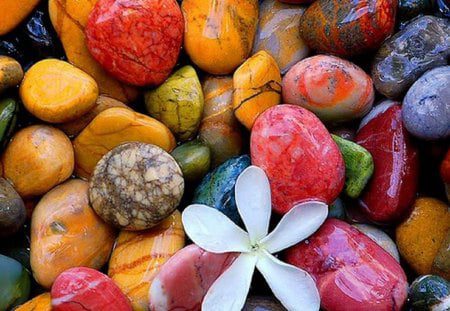In the contributions published in this Druids for Justice section, we hear the voices of OBOD members. The pieces reflect the reality lived by members directly affected by racism or other injustices, and how Druids have taken action to express their love of justice, in ways great or small. They tell their stories. They reflect the diversity of the Order. May all our conversations together be held in a spirit of peace and love. You can send your own submissions by email to justice@druidry.org.
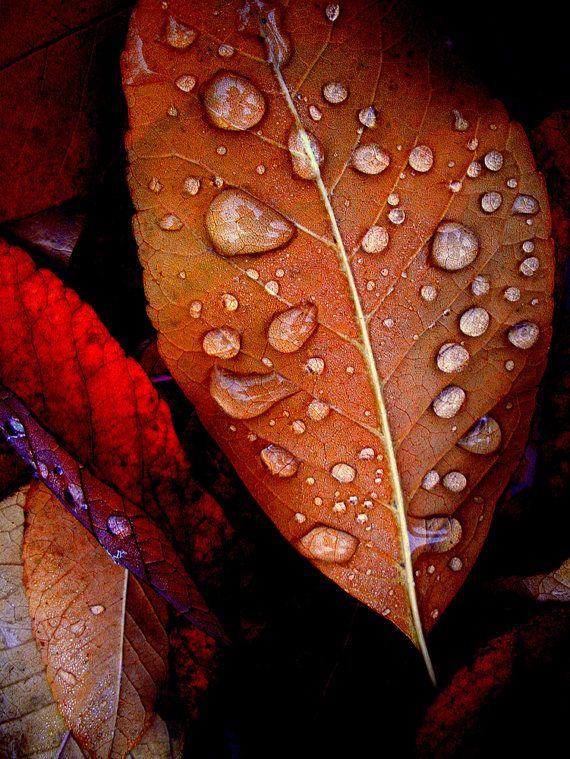
by Heliette Garcia-Fernandez
I’m French. I’m brown-skinned. Other French people tend to ask me about my origins, to which I invariably answer Angers, West of France. Some of them insist – but you must have origins elsewhere. Like everyone else, I do. But my white mother fell in love with a handsome dark man when she was seventeen, got pregnant as was her wish, and the man never knew about it, so my genealogical tree is short. Very short. Both my maternal grandparents were orphans. I’m quite a traveller and a linguist, so I’ve been asked if I was French (got it in one!), American, English (I had this nice Plymouth accent after living there for a year), Guatemalan, Nepali, Swedish (I swear, although granted, it was in a remote village in the Annapurnas), Indian – in Maharashtra people tended to speak Hindi to me directly -, Morroccan, Tunisian, Algerian, Argentinan, Dominican (I lived in Dominican Republic for two years) and Egyptian. I’m sure I’m forgetting some. This has allowed me to blend in everywhere I go and, more importantly, to be instantly accepted as a local, or singled out as a person with a fascinating background. Whether or not this was the case was irrelevant: being brown opened doors to me. Being a woman travelling on her own made me welcome in countless families in a number of countries where the rights of women may not be at the forefront of preoccupations.
As a child, I was often a target of prejudice and racism. I had all the wrong labels, with the perfect background to become a scapegoat everywhere I went. My bipolar mother got married when I was three to a white man who revealed himself to be an alcoholic, abusive and racist, of this ‘ordinary racism’ that proceeds more from ignorance than hatred. We moved every six months, lived in a caravan, and I changed schools each time. So when I arrived in a new school, I was greeted with insults – « négresse » is one that I don’t need to translate, and also « dirty bohemian ». But those were from kids who picked on difference. If I had worn glasses then as I do now, they’d have been tossed in the taunts, too. I showed them who was boss, mostly by becoming the best pupil in my class because I had this amazing luck of being gifted for studies (so then, they called me a nerd!), and sometimes by kicking and punching the loudest kid. Taunts never lasted. Being resilient and sunny, also a lucky draw, I never felt affected for long and made friends in five minutes. At home, things were different. The insults and taunts by my stepfather were much nastier. I was sent in foster care for the first time at age ten, for two years. So the labels changed – kids were older and racism rarer, but ‘foster kid’ was the new difference.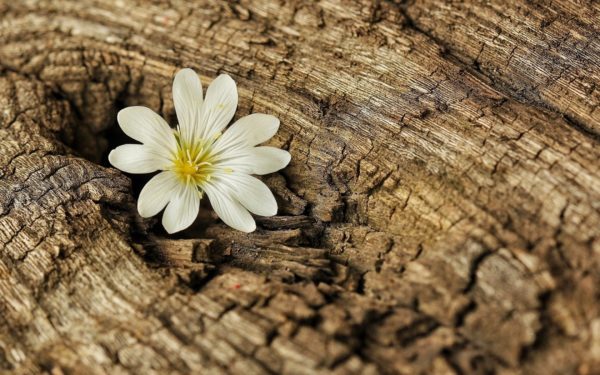 At age twelve, I was sent back to my family and to suffer the worst year of my life. But also, in some respects, this was the year that explains why I am a druid. When you live in a nine meter long caravan with an abusive stepfather and a depressed chainsmoking mother, and have to take care of two little kids – my stepbrother and stepsister, who were much younger than me – the only haven you have, the only solace you find is outdoors. When I was twelve, I wrote an essay at school that I still have today. It talks about the hollow tree and the brook where I found refuge and observed squirrels, read books, wrote and played the flute. There was a forest nearby that I liked to explore, and on the bitingly cold and snowy winter of 1991, this is where I spent all day when I wasn’t safe at school. On the very worst morning in my life, the day after my stepfather committed acts that would send him to prison – for too short a time – a fox crossed the road before me, as I was walking to my bus stop for school. And I remember the wonder I felt. It glanced at me and continued on its way. Fox is still, for me, the very essence of resilience and adaptability.
At age twelve, I was sent back to my family and to suffer the worst year of my life. But also, in some respects, this was the year that explains why I am a druid. When you live in a nine meter long caravan with an abusive stepfather and a depressed chainsmoking mother, and have to take care of two little kids – my stepbrother and stepsister, who were much younger than me – the only haven you have, the only solace you find is outdoors. When I was twelve, I wrote an essay at school that I still have today. It talks about the hollow tree and the brook where I found refuge and observed squirrels, read books, wrote and played the flute. There was a forest nearby that I liked to explore, and on the bitingly cold and snowy winter of 1991, this is where I spent all day when I wasn’t safe at school. On the very worst morning in my life, the day after my stepfather committed acts that would send him to prison – for too short a time – a fox crossed the road before me, as I was walking to my bus stop for school. And I remember the wonder I felt. It glanced at me and continued on its way. Fox is still, for me, the very essence of resilience and adaptability.
Back I went to foster care. Fast forward a few years. I became an adult, a high school teacher and humanitarian emergency delegate, a martial artist, and most of all, a writer. Most people pay no attention at all to the colour of my skin, and my mother-in-law was quite surprised to remark it about a year after I married my husband, when I joked about the colour of our potential kids (they’re here now, a girl and a boy!). The only question I get is about my origins. But lately, in the last ten years or so, people have been making assumptions. For example, that I’m Arabic. And that I’m a Muslim. I’m neither. I’m French, and that’s it so far as I know, having been raised in this culture only. Since I’m a vegetarian, when I go out and ask for a veggie dish, waiters have occasionally suggested chicken or fish, or halal pork. So I explain myself. I don’t eat animal flesh. At all.
To me, the perception of colour is a cultural thing, and this is the point that I’d like to make.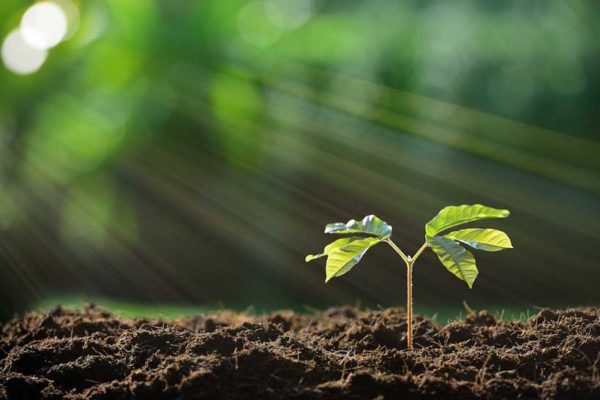 A few anecdotes. Dominicans thought I was rather white. Haitians thought I wasn’t black enough. Some people from the North of France think I’m rather not white enough. I’ve never seen Obama as black. I’ve seen what racism does to the exiled populations seeking refuge in the North of France, in Calais and Grand Synthe, as a Red Cross delegate. I was, once, called a racist on the phone because I had excluded a violent student from my class, and then the parents were very embarrassed when we met and they saw I was roughly the same colour as they were. There were startled looks when I lived in Dominican Republic with my – then – boyfriend, who was white. They thought I was a prostitute. There were outraged looks when I travelled to South Africa, with my husband, who is white, and some people did not seem to understand the point of us being a couple. There was this hilarious moment in an airport in Dubai, while on transit to Nepal, when my husband was the one looked at from all angles, compared to his passport photo, interrogated and searched. Usually, it’s me.
A few anecdotes. Dominicans thought I was rather white. Haitians thought I wasn’t black enough. Some people from the North of France think I’m rather not white enough. I’ve never seen Obama as black. I’ve seen what racism does to the exiled populations seeking refuge in the North of France, in Calais and Grand Synthe, as a Red Cross delegate. I was, once, called a racist on the phone because I had excluded a violent student from my class, and then the parents were very embarrassed when we met and they saw I was roughly the same colour as they were. There were startled looks when I lived in Dominican Republic with my – then – boyfriend, who was white. They thought I was a prostitute. There were outraged looks when I travelled to South Africa, with my husband, who is white, and some people did not seem to understand the point of us being a couple. There was this hilarious moment in an airport in Dubai, while on transit to Nepal, when my husband was the one looked at from all angles, compared to his passport photo, interrogated and searched. Usually, it’s me.
Michel Pastoureau, a French historian and philosopher, published a fascinating series of books about the history of colours – blue, red, yellow… and demonstrated brilliantly that the perception of colours is indeed linked to culture more than to the colour itself. Racism is based on prejudice and misconceptions, but part of it is unconscious. It’s in our cultural baggage. We see this when mainstream ideas painstakingly try to evolve, and some people will panic and refuse to let go while others will embrace more easily a larger, more tolerant vision of the world. For some, letting go of what they call values is depriving themselves of their identities ; they don’t see difference as enriching, and they only see differences instead of common points. I’m blessed in that I tend to see, first, the common points, and then thrive on the differences. Not everyone is like this. No amount of arguments can fix this ; I think it is more linked to experience than knowledge.
I see racism as I could describe meditation or even a spiritual path. It’s all very well to read about it, become very knowledgeable on the topic. As long as you haven’t experienced it, a vital piece is missing to truly understand it. I’m not talking only of victims ; but also of perpetrators. If you have never caught yourself in the act of judging someone else harshly because of your own prejudices and limitations, I bow to you. The heart of the matter to me is, what do we do with this experience?
I take it to a tree. Or it vanishes in a single instant of wonder when I meet a wild animal. Nature has always soothed me, amazed me, and at times terrified me. As an emergency delegate, I saw the results of some of the most recent natural disasters in the world. I felt what being in an earthquake means, and how utterly bewildering it is to lose all sense of comprehension the first time it happens. I have a knack with wild animals, something that has been seriously enhanced by druidry as well as my qi gong practise. It nourishes me. It connects me to the whole world, so that I can give back to it, too.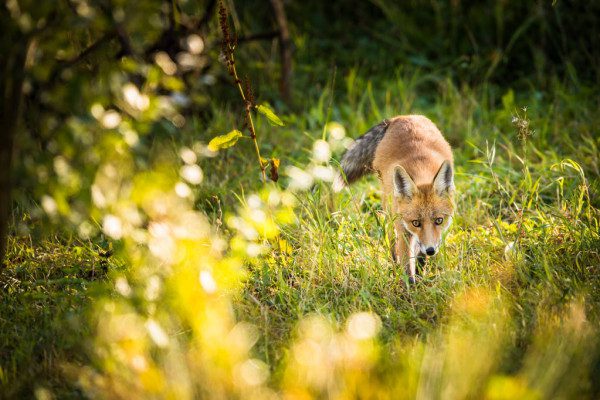 I was shocked, once, twenty years ago, to have to fill a form for the University of Exeter where I had to tick a box about my ethnicity (I chose ‘other’. I was stumped). I am not a colour of skin. I have never felt the need or use to define myself by it. And if others, by using racist insults, thought to taunt me with the most obvious difference they could see, I have never felt the effects of racism on my career or in my personal life. I understand, as I said, that it’s a cultural thing – and that in the US, for instance, it’s a whole different issue. I thought I’d share my experience, because we at the OBOD are from all over the world, and that is part of what makes me like the Order. With no special thought for anyone’s colour of skin, or gender, I see that we are practitioners of a nature-based religion, that we seek peace and harmony. Wherever we come from and however we practise it, our differences make us more able to encompass the diversity of life – how can we pretend to understand and worship the diversity of the flora and fauna in the world but be blind to members of our own species?
I was shocked, once, twenty years ago, to have to fill a form for the University of Exeter where I had to tick a box about my ethnicity (I chose ‘other’. I was stumped). I am not a colour of skin. I have never felt the need or use to define myself by it. And if others, by using racist insults, thought to taunt me with the most obvious difference they could see, I have never felt the effects of racism on my career or in my personal life. I understand, as I said, that it’s a cultural thing – and that in the US, for instance, it’s a whole different issue. I thought I’d share my experience, because we at the OBOD are from all over the world, and that is part of what makes me like the Order. With no special thought for anyone’s colour of skin, or gender, I see that we are practitioners of a nature-based religion, that we seek peace and harmony. Wherever we come from and however we practise it, our differences make us more able to encompass the diversity of life – how can we pretend to understand and worship the diversity of the flora and fauna in the world but be blind to members of our own species?
Just like this invitation to share our experiences allows us all to reflect and grow, our disagreements are the best source for us to move forward. I think of it like the spring of Segais. Drink from any of its five streams, and you could argue forever about the differences in your perceptions and the results of your experience. Ultimately, it all comes from the same source.